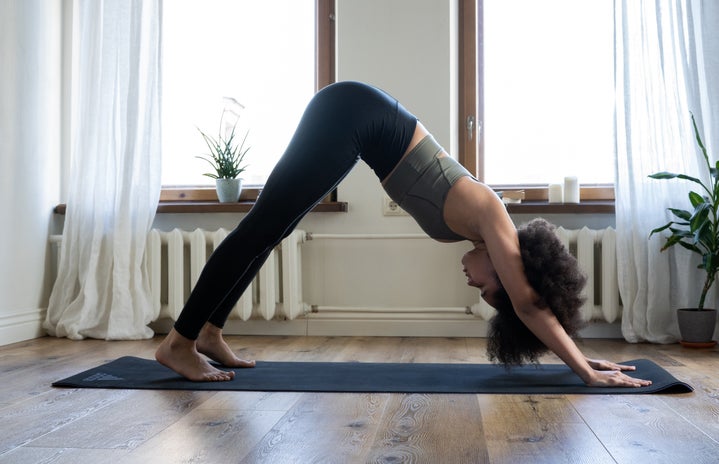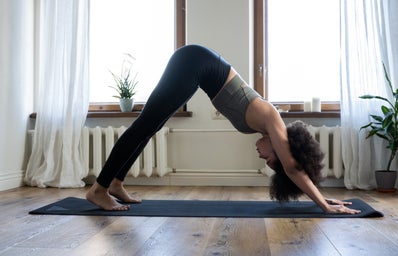Within the past year in quarantine, have you experienced increased feelings of loneliness, disconnect, anxiety, and depression? Turns out, most people have. These negative feelings have been increasingly prevalent around the world as the pandemic forces isolation and promotes fear, exacerbating people’s mental well-being, diagnosed or otherwise.
According to a recent study, the prevalence of depression symptoms in the US have been found to be three times higher during the pandemic than prior.
Minorities have been hit the hardest. In June, the Center for Disease Control (CDC) reported that Black and Hispanic populations suffered from higher levels of anxiety or depressive disorders related to COVID-19 when compared to white people. Yet, the prevalence has impacted all demographics, even some of the most well off individuals in the country. Back in August, former First Lady Michelle Obama mentioned that she was suffering from depression as a result of the pandemic.
Typical treatments for depression and anxiety disorders mainly include antidepressant medication and therapy. Medication has many potential side effects and typically requires a diagnosis along with a doctor’s note that could very well be unattainable in the current climate. Treatment therapy may also be unattainable and more ineffective by speaking to someone on a computer screen rather than having the physical comfort of speaking to someone in person.
So…what if I told you an effective method to combat these feelings requires no medication or professionals at all, it only requires you?
This method is called YOGA! Yoga is a practice that you have the luxury of doing anywhere: all you need is yourself! It is a mind-body practice that can take on many different forms, but traditionally combines poses, postures, breathing exercises, and meditation. It encourages mindfulness: one’s awareness and acceptance of their thoughts, feelings, and sensations. As a yoga lover myself, I continuously experience the mental transformation that the practice offers, vastly improving my mood and mindset during and after my yoga practice. The potential impact yoga has on increasing motivation, relaxation, and mood can make a world of difference to your mental health.
The practice of yoga has consistently shown to decrease symptoms of depression. In a study measuring the impact of yoga on depression, participants attended yoga classes three days a week for two months. As predicted, when their scores after practicing yoga were compared to prior, they found that negative moods significantly decreased after the yoga therapy period, while positive and energized moods increased. A majority of participants described their mood as happy, confident, relaxed, and optimistic.
This study suggests that the improvement in mood and other depressive symptoms is associated with adopting the practice of yoga. The serenity that yoga brings about allows people to cope with their stressors that are often the cause of depression and anxiety in the first place. Given its ease, accessibility, and affordability, it could be an effective form of alternative medicine for those with diminished mental health during this time, as yoga can counteract negative thought processes similar to medicine.
Not only has yoga shown to decrease symptoms of depression, it has also shown to increase self-esteem, which we can all use more of these days. In this study, the effects of yoga were compared with those who participated in alternative physical exercise. Participants were given questionnaires to evaluate their self-esteem before and after their form of exercise. The results of the study showed that the yoga group revealed higher and more thorough indications of self-esteem than the physical exercise group.
This study suggests that the practice of yoga is associated with improved self-esteem and confidence, more so than typical physical exercise is. It also brings to attention how the practice of yoga is related to incredible holistic growth in individuals, associated with the promotion of one’s mood and positive mindset. The pandemic has made people particularly vulnerable to a negative mindset as well as decreased confidence and self-esteem, making these benefits of yoga that much more important.
One final study also evaluated two different exercise groups, one yoga and one traditional physical exercise, found that the yoga group had higher levels of concentration, among other cognitive functions. The study utilized computer generated tests to measure participants’ accuracy and response time to stimuli. In the end, the study found that the response time and accuracy to stimuli as well as concentration of participants after the yoga session was significantly greater than that of the alternative.
This study goes to show that, not only is yoga related to the decrease in symptoms of depression and anxiety, it is also associated with improved mental clarity and important brain functions, so next time skip the coffee and make it to your mat!
Yoga proves itself time and time again as a highly beneficial practice that is frequently associated with improved mood, relaxation, energy levels, and cognitive function. If you feel down in any way, especially being stuck at home, give yoga a try! It may be more powerful than you think and end up changing your life for the better, like it did for me and so many others around the world.



